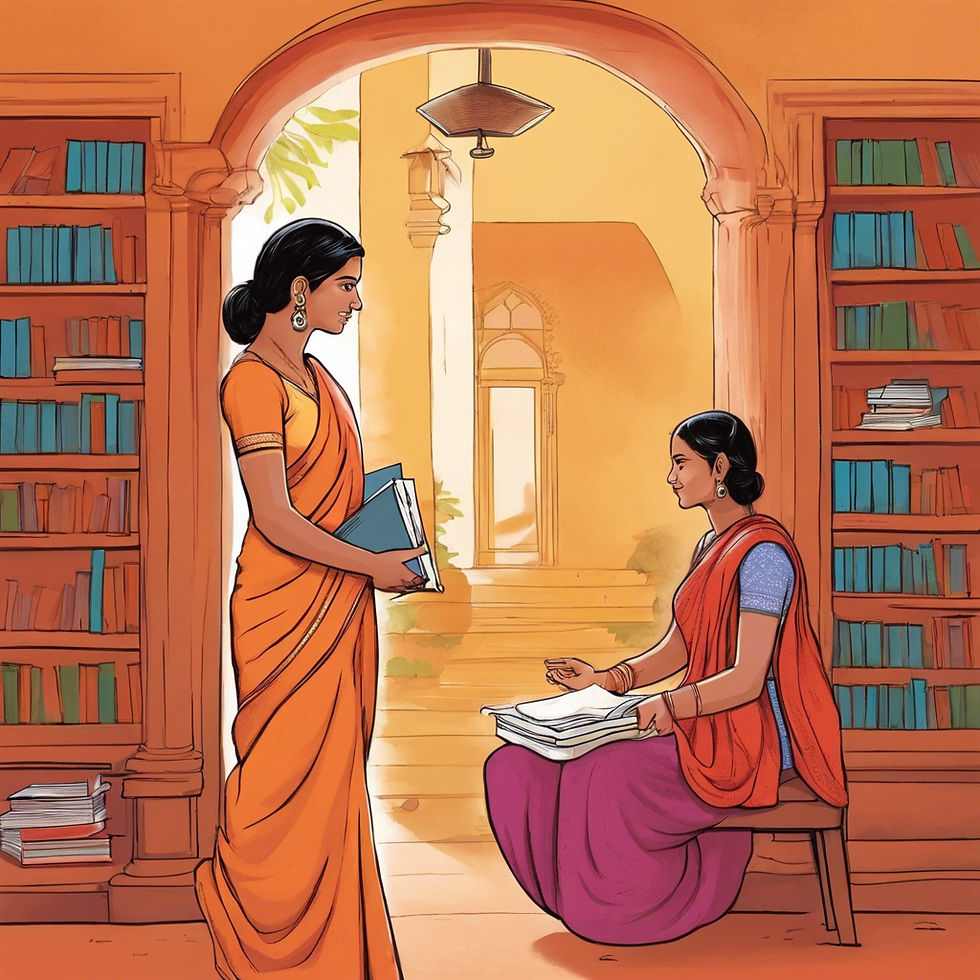Gender-Based Violence: An Education Awareness Program
- ssubiah
- Jun 8, 2024
- 3 min read
Updated: Nov 28, 2025

Knowledge is her armor, education her shield; empower a woman with learning and watch violence yield.
The concept of health is a multifaceted one that has and continues to change with time. Thousands of years ago, ancient Indian teachings emphasized the importance of Ayurveda (knowledge of life) in medicinal practices: a holistic healing approach that promotes physical, mental, and spiritual well-being through diet and meditation. Though Ayurvedic practices are still prominent in India, with more than 700,000 doctors holding an Ayurveda qualification as of 2021, this traditional healing system has lost traction as modern medicine rapidly evolves.
Introduced by Europeans in the 1600s, Western medicine laid the groundwork of health models India now knows and practices today, especially those rooted in evidence-based methods. Though Western medical paradigms emphasize a more scientific approach to well-being, they also decrease the significance of Ayurveda and its holistic principles, prioritizing the physical aspects of health over the intangible ones. By diminishing attention to emotional and spiritual wellness, this causes a notable surge in mental health stigma that particularly impacts women living in rural India.
There are a variety of factors that affect a woman’s mental health, including pregnancy, motherhood, and menopause. Additionally, a part from major life transitions, negative experiences such as gender-based violence can have detrimental effects. Of the six million crimes that Indian police had recorded in 2021, 428,278 cases involved crimes against women. This number has increased significantly from 2016, where 338,954 cases had been reported. A majority of the cases in 2021 included abductions, rapes, domestic violence, and assaults on women.
"Of the six million crimes that Indian police had recorded in 2021, 428,278 cases involved crimes against women."
Currently, PHRII is working on an educational awareness project that aims to reduce the prevalence of gender-based violence (GBV) in urban slums. This is a qualitative study that explores the local inhabitants' views of GBV, and implements intervention strategies such as educational workshops.
One of the slums we visited was located 10 minutes away from PHRII. Using a small, vacant hall adjacent to a temple, we started arranging chairs, tables, and preparing a PowerPoint presentation for the educational workshop.




Some pictures of the educational workshop site

Setting up the GBV workshop
After setting up, several PHRII members and I ventured into the slum to remind and encourage women to attend the GBV workshop. We were also supported by an ASHA worker (accredited social health activist) who, due to her personal connections with the inhabitants, effectively conveyed our message across to them.



Some pictures of Nagaveni (community staff nurse; pink kurta), Rani (clinic coordinator/staff nurse; floral kurta), and I (red and white kurta) engaging with the slum inhabitants
Despite initial reluctance, the workshop saw a strong turnout, primarily comprised of mothers and children, along with a few number of men and elderly people.


Dakshayini (outreach worker; dark purple kurta) registering attendees for the GBV workshop



GBV workshop in action with Ambika (counsellor/training coordinator; dark blue saree) leading the session in Kannada. Fazila (counsellor/training coordinator; white saree) distributed flyers to the attendees
The workshop centered around instances of GBV such as child marriage, rape, and physical and emotional abuse, along with strategies for fostering social behavioral change. In general, most attendees were eager and enthusiastic about gaining insights from the workshop.
On the whole, educating women on GBV is essential for fostering a society of equality, safety, and empowerment. By providing women with knowledge about resources and avenues for support, we not only equip them to protect themselves but also to advocate for systemic change. Education serves as a catalyst for breaking a vicious cycle of violence, which consequently transforms communities and paves the way for a future where every woman can live free from oppression.



Comments